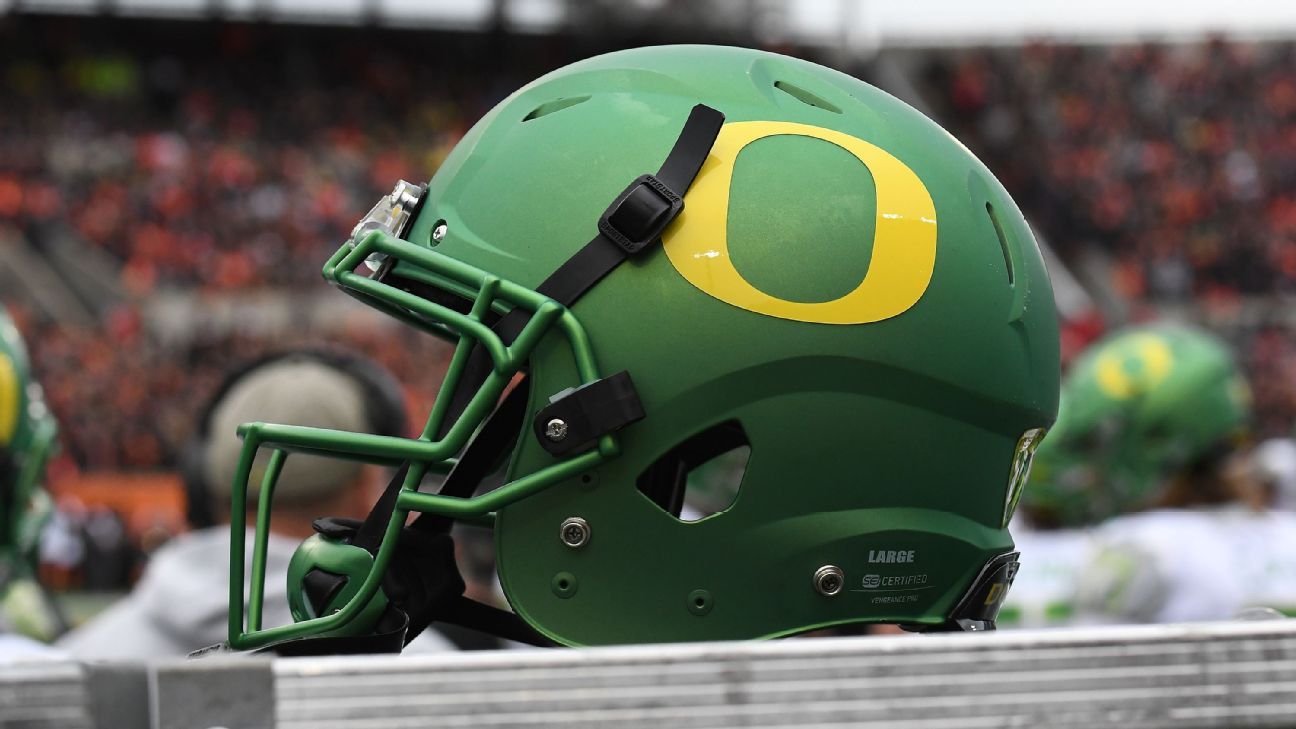The NCAA committee on infractions placed Oregon’s athletics department on two years’ probation on Wednesday for violations in its men’s and women’s basketball, football and women’s track and field programs.
Additionally, the NCAA ruled that Oregon women’s basketball coach Kelly Graves failed to monitor his staff and promote an atmosphere of compliance and suspended him for two games this season. The NCAA also ruled that men’s basketball coach Dana Altman failed to monitor his director of operations, who was given a two-year show-cause order by the committee.
The NCAA also fined Oregon $5,000, plus one percent of its men’s and women’s basketball budgets.
Last year, Oregon received an NCAA notice of allegations, which alleged that its football, men’s and women’s basketball programs and women’s track and field programs had committed several Level II rules violations. Most of the allegations were self-reported by the school.
Among the allegations:
• Director of men’s basketball operations Josh Jamieson participated in or observed individual voluntary workouts at least 64 times.
According to the NCAA, Jamieson described his involvement in the voluntary workouts as a “very poor lapse in judgment” and explained he wanted to help incoming freshmen transition to college and give them the workout time they wanted.
After learning of the activity, according to the NCAA, Altman imposed disciplinary measures, including a one-month suspension.
The NCAA alleged that Jamieson observed additional voluntary workouts by a student-athlete at a local high school track, while the NCAA was conducting its investigation.
“In its report, the committee stressed it was especially troubled that the director of basketball operations participated in the impermissible activities after he served a suspension for being involved in workouts with one of same student-athletes,” the NCAA said in a release.
The NCAA ruled that any institution employing Jamieson over the next two years must require him to attend NCAA regional rules seminars. He is still employed at Oregon.
• A women’s basketball assistant strength coach participated in on-court activities both during and after practices, including stepping into drills at Graves’ request.
According to the NCAA, Graves explained during the infractions hearing that the strength coach’s impermissible activities “started with a lapse of judgment and then became more frequent.” Graves admitted he knew it was improper for the assistant strength coach to participate, according to the NCAA.
“In its report, the committee said it appreciated the coach’s candor at the hearing and his admission to lapses of judgment,” the NCAA release said. “But the head coach’s disregard for the rules about impermissible coaching activity did not set the proper tone for compliance in his program, the committee added.”
• An adjunct instructor altered a course grade from an F to a B-minus for a women’s track and field student-athlete, which allowed her to remain eligible and earn a degree.
The NCAA said the instructor initially offered to change the grade to incomplete until the athlete completed the course over the summer. But when the instructor attempted to do that, the online grading system wouldn’t allow it. So the instructor changed the grade to a B-minus, based on the work the athlete had completed to date, much of which was completed after the course was over.
“When the university discovered the grade change, the instructor, who was not familiar with NCAA rules, told the university he would have made the same accommodation for any other student, regardless of student-athlete status,” the NCAA release said.
Oregon officials determined that the change violated the university’s grading policy, so the original grade was reinstated and the student-athlete’s degree was rescinded. However, Oregon’s senior vice provost for academic affairs ruled that while the grading policy was violated, the student-athlete didn’t violate its academic misconduct policy.
The release said NCAA and Oregon officials disagreed about whether the instructor’s actions violated NCAA rules, but NCAA rules interpretation staff and membership committees ultimately determined that it did.
“In the rationale, the interpretation staff and committees said it was academic misconduct because the university determined the activity violated its grading policy, the activity resulted in the falsification of a student-athlete’s transcript, and the grade was used to establish eligibility to compete,” the NCAA release said.
• The football team posted personal information about prospects on an electronic reader board in the football facility during their visits to campus. Oregon compliance initially approved the practice, but the Pac-12 Conference contacted the Ducks and told them it might violate NCAA rules. The compliance staff then directed the football program to end the practice and self-reported the violation.
